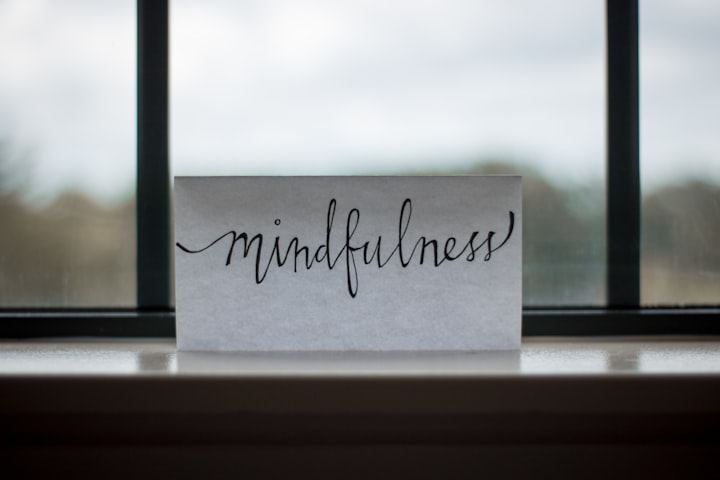The Ultimate Guide to Managing Stress and Anxiety: 20 Strategies That Actually Work
Transform Your Life with These 20 Proven Ways to Manage Stress and Anxiety

Stress and anxiety are common experiences that many people face in their daily lives. Stress refers to a physical or psychological response to external factors, such as pressure or demand, while anxiety is a feeling of unease or worry about a future event or uncertain situation.
While stress and anxiety are normal responses to challenging situations, chronic stress and anxiety can have negative effects on physical and mental health. Some common symptoms of stress and anxiety include:
• Irritability or moodiness
• Muscle tension or headaches
• Difficulty sleeping or concentrating
• Racing thoughts or worry
• Increased heart rate or sweating
There are many strategies that can be helpful for managing stress and anxiety, such as:
1.Exercise: Exercise is a great way to manage stress and anxiety as it helps release endorphins, which are natural mood-boosters. Physical activity can also help you focus on your body and away from negative thoughts. Engage in regular exercise, such as running, swimming, or cycling, for at least 30 minutes a day.
2.Mindfulness Meditation: Mindfulness meditation can be a powerful tool for managing stress and anxiety. Through regular practice, mindfulness meditation can help you develop greater self-awareness, reduce stress levels, and improve overall well-being. To practice mindfulness meditation, find a quiet place to sit, focus on your breath, and observe your thoughts without judgment.
3.Deep Breathing: Deep breathing is a simple but effective technique for managing stress and anxiety. When we feel stressed or anxious, our breathing becomes shallow and rapid. By taking slow, deep breaths, we can slow down our heart rate and calm our nervous system. To practice deep breathing, sit or lie down in a comfortable position, close your eyes, and inhale deeply through your nose for 4 seconds, hold for 7 seconds, and exhale through your mouth for 8 seconds.
4.Get Enough Sleep: Getting enough sleep is crucial for managing stress and anxiety. Lack of sleep can increase feelings of anxiety and irritability. Aim for 7-8 hours of sleep per night, and establish a regular sleep schedule to promote better sleep quality.
5.Seek Support: Sometimes, managing stress and anxiety can be overwhelming, and seeking support can be helpful. Consider talking to a trusted friend or family member, or seek professional help from a therapist or counselor.
6.Practice Self-Care: Engage in activities that promote relaxation and self-care, such as taking a warm bath, getting a massage, or reading a book. Make time for activities that you enjoy, and prioritize self-care as an essential part of your daily routine.
7.Eat a Balanced Diet: Eating a balanced diet can help manage stress and anxiety. Avoid sugary or processed foods, and instead, focus on eating nutrient-dense foods such as fruits, vegetables, lean proteins, and whole grains. Avoid excessive caffeine and alcohol, as they can worsen feelings of anxiety.
8.Practice Gratitude: Gratitude can be a powerful antidote to stress and anxiety. By focusing on the things in your life that you are grateful for, you can shift your focus away from negative thoughts and promote feelings of positivity and well-being. Consider starting a gratitude journal, where you write down three things that you are grateful for each day.
9.Practice Time Management: Feeling overwhelmed by responsibilities and tasks can contribute to feelings of stress and anxiety. To manage your time effectively, prioritize your tasks, break large tasks into smaller ones, and set realistic goals for yourself. Avoid multitasking, as it can be counterproductive and increase stress levels.
10.Connect with Nature: Spending time in nature can be a powerful way to reduce stress and anxiety. Research has shown that spending time in nature can lower cortisol levels, decrease feelings of anxiety, and improve overall well-being. Consider taking a walk in a park or spending time gardening to connect with nature.
11.Cognitive Behavioral Therapy (CBT): CBT is a type of therapy that can be effective for managing stress and anxiety. CBT focuses on changing negative thought patterns and behaviors that contribute to stress and anxiety. Through CBT, individuals learn to recognize and challenge negative thoughts, develop coping strategies, and establish healthy behaviors.
12.Progressive Muscle Relaxation (PMR): PMR is a relaxation technique that involves tensing and relaxing different muscle groups in the body. This technique can be helpful for reducing physical tension and promoting relaxation. To practice PMR, lie down or sit in a comfortable position and tense and relax each muscle group for 5-10 seconds, starting with your toes and working your way up to your head.
13.Acupuncture: Acupuncture is a traditional Chinese medicine technique that involves inserting thin needles into specific points on the body. Acupuncture can be helpful for managing stress and anxiety by promoting relaxation, reducing physical tension, and improving overall well-being.
14.Practice Mindful Breathing: Mindful breathing involves focusing on your breath and observing your thoughts without judgment. This technique can be helpful for managing stress and anxiety by promoting relaxation and reducing feelings of overwhelm. To practice mindful breathing, find a quiet place to sit or lie down, and focus on your breath, taking slow, deep breaths in and out.
15.Volunteer: Volunteering can be a powerful way to reduce stress and anxiety by promoting feelings of purpose and well-being. Helping others can also promote a sense of community and connectedness, which can be helpful for reducing feelings of isolation and loneliness.
16.Practice Yoga: Yoga is a mind-body practice that combines physical postures, breathwork, and meditation. Practicing yoga can be helpful for reducing stress and anxiety by promoting relaxation, improving flexibility and strength, and increasing mindfulness. Consider taking a yoga class or practicing at home with a video or app.
17.Practice Mindfulness-Based Stress Reduction (MBSR): MBSR is a program that combines mindfulness meditation, body awareness, and yoga to help individuals manage stress and anxiety. Through MBSR, individuals learn to cultivate awareness of the present moment, develop coping strategies for stress, and promote relaxation and well-being.
18.Connect with Others: Spending time with loved ones and building social connections can be an effective way to manage stress and anxiety. Research has shown that social support can reduce feelings of stress and promote overall well-being. Consider reaching out to friends or family members for support, or joining a social group or club to meet new people.
19.Take Breaks: Taking regular breaks throughout the day can be helpful for managing stress and anxiety. Schedule breaks into your day to engage in relaxing activities, such as taking a walk, reading a book, or listening to music. This can help to promote relaxation and reduce feelings of overwhelm.
20.Seek Professional Support: If you are experiencing chronic or severe stress and anxiety, it may be helpful to seek professional support. A mental health professional can provide guidance, support, and treatment options to help manage symptoms of stress and anxiety. Consider reaching out to a therapist, counselor, or psychologist for support.
By implementing these strategies, you can effectively manage stress and anxiety and improve your overall well-being. However, it's important to remember that everyone experiences stress and anxiety differently, and what works for one person may not work for another. Be patient, and experiment with different strategies until you find what works best for you.
In summary, there are many effective ways to manage stress and anxiety, and the best approach may depend on individual preferences and circumstances. By prioritizing self-care, seeking support when needed, and experimenting with different techniques, you can effectively manage stress and anxiety and improve your overall well-being.
About the Creator
Miracle Phronesis
The World Belongs To Those Who Read






Comments
There are no comments for this story
Be the first to respond and start the conversation.